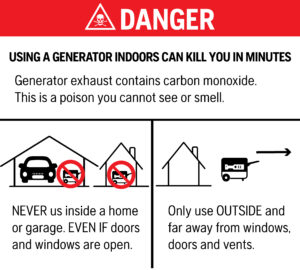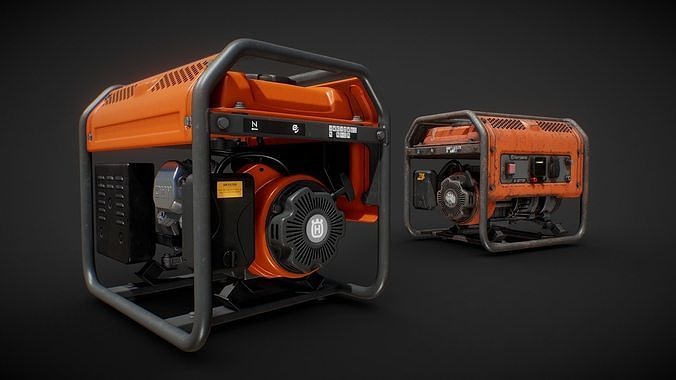Read in
Keep the lights on and your family warm with these safety tips for operating your generator
The latest round of daily load-shedding this winter, ranging from Stage 2 to Stage 6, has left many South African households and businesses in the dark and out in the cold. Alternative sources of electricity – and generators in particular – seem to be our only hope for the foreseeable future to counteract South Africa’s unstable power grid. But many may still be hesitant to make the investment due to safety concerns.
Mark Odell, Husqvarna South Africa’s Product Manager, says that generators have long been the top choice as an alternative source of energy. While there are potential safety hazards, as is the case with most heavy machinery, they are the most robust and reliable option to offset the frequent disruptions to our electricity.
“Thousands of households and businesses have turned to generators to keep their lights on and appliances running,” says Mark. “The majority of generators are fuel-driven and they can be dangerous but by following the safety instructions that appear on every machine, you can have power and stay safe.”

He offers six safety tips that must be followed when operating a generator:
1. Never run a generator in a closed space or indoors
Generators must only be operated in open areas with good airflow to prevent carbon monoxide build-up. You should never run your generator in a partially closed room, garage or inside your house. The ideal situation is to run your generator in a well-ventilated, covered area that is at least five meters from your house or office with the engine exhaust directed away from any windows and doors.
2. Don’t attempt to “backfeed”
Never attach a generator directly to the electrical system of your home or office by plugging the generator into a wall outlet. Known as “backfeeding’, this practice puts utility workers, your neighbours and your household at risk of electrocution. It also bypasses some of the built-in circuit protection devices so you could end up “frying” some of your electronics. If you are operating a business, it’s VERY important that you do not run a welder or an inverter off a generator as it will lead to catastrophic failure of the generator.
3. Water and electricity don’t mix
To avoid electrocution, never touch the generator with wet hands – keep your generator dry and do not use it in rainy or wet conditions. If you are outdoors, operate the generator on a dry surface under an open canopy-like structure, such as a tarp held up on poles. If you must use an extension cord, it should be a heavy-duty cord rated for outdoor use (in watts or amps). Check that the entire cord is free of cuts and that the plug has all three prongs, critical to protecting against shock if water has collected inside the equipment.
4. Storing and using fuel
If you have a petrol or diesel generator, you will need to keep extra fuel on hand. Double-check that you are using the correct type of fuel as specified in the instructions and store it in an appropriate safety container in a cool, well-ventilated place (definitely not next to the generator). When you need to add more fuel, make sure that the generator is switched off and cooled down. And to prevent youngsters from accessing the fuel, store it in a locked cage or cabinet.
5. Keep the area clear
Generators are small engines and as such, give off a lot of heat. Wear protective gloves before touching your generator and prevent fires by keeping it well clear of any other items. And always keep a fire extinguisher close at hand.
6. Maintenance
And finally, like your car, service your generator regularly to keep it in optimal condition and running smoothly. This will also further ensure your safety when you are using it.
For more information or to view Husqvarna’s range of robust and reliable generators, visit www.husqvarna.co.za.



